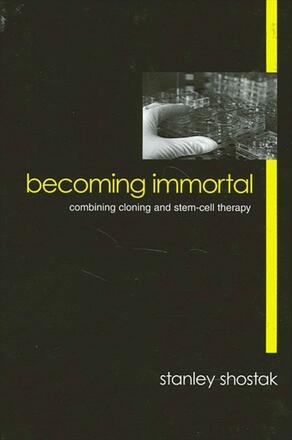
Becoming Immortal
Combining Cloning and Stem-Cell Therapy
Alternative formats available from:
Explores how new organs might be engineered via cloning and reproductive technology to achieve human immortality.
Description
Providing the philosophical, practical, and theoretical leverage for abandoning evolution and development in favor of engineering human beings, Becoming Immortal examines the directions biological change might take if civilization were to take charge of its own destiny. With the aid of embryonic manipulation, cloning, and stem-cell therapy, immortality would seem within the reach of future generations. The question is, "Do we presently have the wisdom to undertake creating immortal organisms?" The author examines every facet of this question, from theory to practice, and provides an answer through an in-depth analysis of life and death.
Stanley Shostak is Associate Professor of Biological Sciences at the University of Pittsburgh. He is the author of Embryology: An Introduction to Developmental Biology; Death of Life: The Legacy of Molecular Biology; and Evolution of Sameness and Difference: Perspectives on the Human Genome Project.
Reviews
"…provides an interesting context for considering a wide range of moral and policy issues that have been raised in previous debates on biomedical technologies." — Science
"This is a bold and imaginative attempt to open up discussion on several levels—biological and ethical—about a possible development in human evolution, notably, that of our becoming immortal. Shostak lucidly and instructively explains why it is that complex cellular life has evolved in a mortal fashion and how developments in biotechnology and increases in our understanding of life will, at some point in the future, enable us to create immortal human beings." — Keith Ansell-Pearson, University of Warwick
"The author has a very interesting and compelling argument for immortality, whereby the provocative implication of this book is that, far from being a pipe-dream, human immortality is a biological possibility. It's a very informative presentation of the pertinent biology and history of biology, with some reference to the larger ethical and political implications of the subject." — Robert M. Johnson, Castleton College